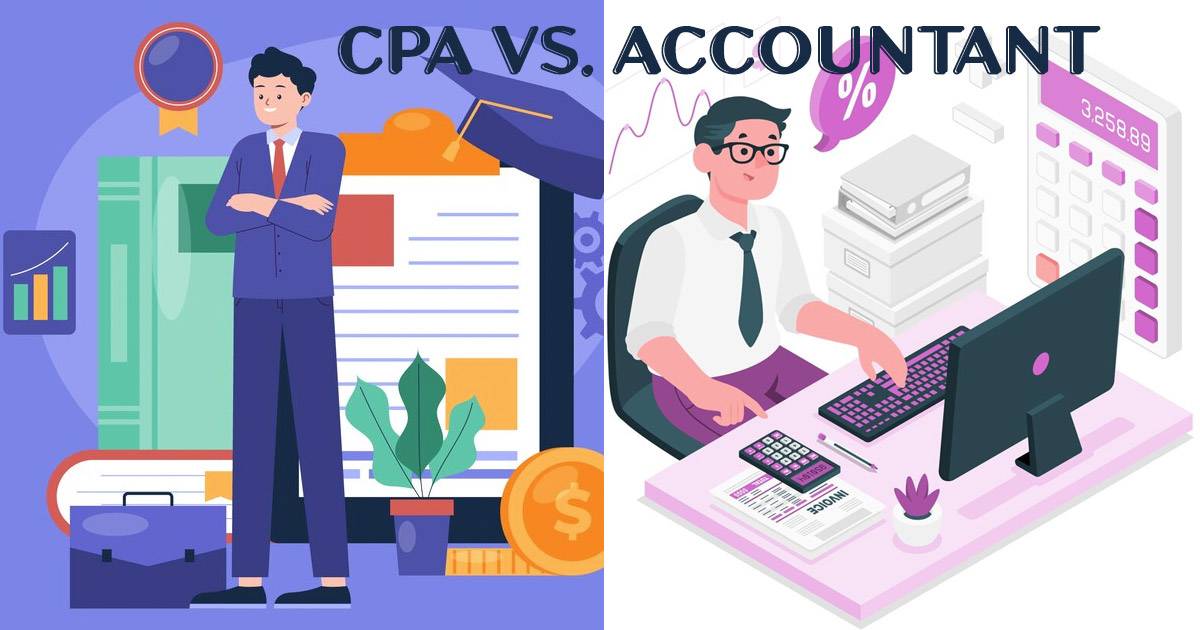CPA vs. Accountant: Understanding Their Roles

When it comes to managing finances, filing taxes, or making sound business decisions, people often wonder who to hire: a CPA or an accountant. Both professionals handle financial matters, but their qualifications, services, and responsibilities can differ significantly. Understanding these distinctions can help you choose the right financial expert for your needs.
Is a CPA the Same as an Accountant?
In short, not quite. While all CPAs are accountants, not all accountants are CPAs. A CPA, or Certified Public Accountant, is an accountant who has passed a rigorous licensing exam and completed specific education and experience requirements. This certification equips CPAs with specialized skills and authorizes them to perform services such as audits, financial analysis, and IRS representation.
Accountants without CPA credentials typically handle bookkeeping, financial reporting, and tax preparation but may lack the authority to perform certain regulated tasks. This difference in qualifications makes CPAs distinct in their roles, expertise, and responsibilities.
Benefits of Getting an Accountant
Hiring an accountant provides essential financial support for individuals and businesses. Accountants play a critical role in keeping finances organized, which benefits clients in multiple ways:
- Better financial organization
- Improved budgeting and financial forecasting
- Assistance with tax preparation and filing
- Accurate financial reporting and analysis
- Financial compliance and record-keeping
Advantages of Hiring a CPA
A CPA offers an advanced level of expertise, particularly for those with complex financial needs. CPAs provide the following benefits:
- Legal authority to perform audits
- IRS representation during tax issues
- Guidance on regulatory compliance
- Expertise in financial consulting and strategy
- Assistance with forensic accounting
CPA vs. Accountant: Differences in Roles & Responsibilities
While both accountants and CPAs handle financial matters, their roles and responsibilities vary depending on their qualifications and areas of expertise. CPAs typically have a more comprehensive skill set, allowing them to tackle complex tasks that require certification. Here’s a breakdown of the unique roles and services each professional can offer.
Public vs. Private Sector Roles
Accountants often work in either the public or private sectors, handling essential financial tasks like bookkeeping and payroll. In public accounting, CPAs work for firms that serve multiple clients, conducting audits, tax services, and financial advisory. This setup allows CPAs to specialize in tasks with regulatory and compliance requirements, which gives them an edge in the public sector.
Authority in Audits and Financial Statements
One of the main distinctions is that CPAs can perform and sign off on audits and reviewed financial statements. This authority is particularly important for businesses needing audits for regulatory compliance or investor assurance. Accountants without CPA credentials are generally not authorized to sign audited financial reports, limiting their ability to offer this service.
Tax Representation and Compliance
CPAs are authorized to represent clients before the IRS, making them the go-to experts for tax issues. They assist with audits, appeals, and tax resolution cases, offering a layer of protection and expertise that accountants without CPA certification may not provide. This authority can be vital for individuals or businesses facing complex tax situations.
Forensic and Investigative Services
CPAs are often trained in forensic accounting, where they investigate financial discrepancies and fraud. They work in areas like insurance claims, financial disputes, and criminal investigations, bringing a specialized skill set that requires certification. Accountants may contribute to similar tasks but usually lack the training or credentials for in-depth forensic investigations.
Continuing Education and Professional Standards
CPAs are held to strict continuing education requirements, ensuring they remain updated on tax laws, accounting standards, and regulatory changes. Accountants may pursue further education but are not required to meet the same standards. This ongoing training enables CPAs to provide up-to-date advice and maintain high professional standards, especially in areas involving compliance.
Who is the Right Financial Professional Based on Your Needs?
Deciding between an accountant and a CPA depends on the complexity of your financial needs. Accountants are skilled at managing day-to-day finances, tax preparation, and reporting, which suits personal finances or small businesses with straightforward requirements.
If you need IRS representation, financial auditing, or expert advice on compliance, a CPA might be a better fit. Each professional offers valuable expertise, so consider what your financial situation calls for.
Choosing Between a CPA and an Accountant: Final Thoughts
Hiring the right financial expert can make a world of difference in managing finances, minimizing taxes, and ensuring compliance with financial regulations. Both accountants and CPAs bring essential skills to the table, but a CPA’s certification enables them to take on more complex roles like audit sign-offs and IRS representation.
Ultimately, if your financial needs require higher levels of expertise, a CPA offers added value with specialized services that accountants may not provide. Make an informed choice that aligns with your financial goals for the best outcomes.
